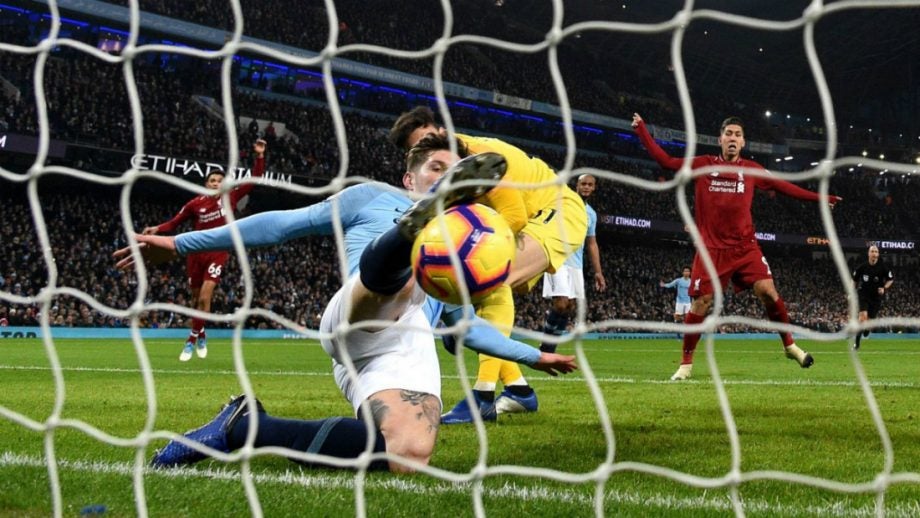The Premier League’s piracy crackdown is getting more effective by the season

The Premier League has revealed that it managed to block or disrupt more than 200,000 illegal live streams of matches during the 2018/19 season. That’s more than it managed over the course of the previous season − which suggests that it’s getting harder and harder for people to live stream matches illegally.
Key to this was ‘Super Block’, a High Court blocking order that required the UK’s major internet service providers, including Sky, BT, Virgin Media, TalkTalk, plusnet and EE, to block and disrupt servers that host illegal streams of the Premier League’s matches in real time, across the entirety of the 2018/19 season.
“The High Court Order has been in place for over two years now and during the 2018/19 season enabled us to block or disrupt more than 200,000 live streams,” a Premier League spokesperson told Trusted Reviews.
A similar arrangement was in place for the 2017/18 season, during which the Premier League managed to disrupt or block nearly 200,000 illegal streams. The numbers are creeping up.
“Super Block … is proving an increasingly efficient way of blocking illegal streams at the server level,” William Bush, the executive director of the Premier League, said at the Westminster Media Forum (WMF) on July 5.
“Piracy can be done and gone before large, slow-moving bureaucracies like the tech giants have bothered to do anything about it. With Super Block, we can move really quickly, and the good thing about that is just the risk of disruption of the feed means that consumers will tend to go to a legal offering if they can get it.
“Because if there’s a 15-20-30-40-50% risk that the match is going to go down, then they’re going to be hacked off about it.”
Related: Best VPN
But that’s not all. “We’ve also taken action against suppliers and people who operate illegal streaming devices, and we’re now seeing significant jail terms being handed down. Illegal broadcasting in pubs, which used to be endemic, is now much less so,” Bush added.
And the action that the Premier League has taken against pubs that have been screening games illegally appears to have been very effective indeed.
“Since the anti-piracy programme began its enhanced investigations in 2013, we have seen a 95% reduction of pubs illegally broadcasting Premier League action,” a Premier League spokesperson told Trusted Reviews.
“In working with agencies and other industry partners, the intelligence gathered has led to us issuing cease and desist letters to thousands of pubs found infringing since 2013. While many have stopped their illegal activity as a result of this, we have taken court action against the hundreds that continued.
“Our hard-fought cause of action has been very successful to-date; we have never lost a case.”
The battle between pirates and organisations like the Premier League, the Federation Against Copyright Theft, and Sky has been an intriguing one to follow, and anti-piracy groups scored some major wins last season.
Arrests, legal battles and fines aside, Reddit Soccer Streams, an extremely popular online forum for people looking to live stream football illegally, shut up shop. Ronaldo7, a popular website for people looking for ways to stream live football for free, also stopped posting links to Premier League games.
However, there is of course another side to the coin. One of the biggest frustrations for UK-based fans of the Premier League is that it’s growing increasingly expensive to tune into.
During the 2018/19 season, Premier League broadcasting rights were split between Sky Sports and BT Sport. Amazon will enter the fray this coming season. In other words, in order to watch as many Premier League games as you can during the 2019/20 season, you need to pay for three separate subscription services.
Another major frustration for UK-based viewers is that, even after paying for Sky Sports, BT Sport and Amazon Prime, they aren’t allowed to tune into any Premier League games that kick off at 3pm on a Saturday, due to the controversial “blackout” rule.
The rule, which was introduced the 1960s, prevents live football from being broadcast in the UK between 2:45pm and 5:15pm on Saturdays. It has been in place for decades, and is apparently designed “to protect match attendances at a professional and amateur level and promote grass-roots participation”.
Eleven Sports defied the rule earlier this season − a move that was supported by La Liga − and branded it “one of the biggest generators of piracy in the UK”.
The Premier League, though, supports the rule, with a spokesperson saying at the time: “Along with other English football stakeholders, the Premier League continues to support the closed period to encourage attendances and participation through the football pyramid.
“The amount of football broadcast live in the UK must be balanced against the thousands of amateur teams that play across England on Saturday afternoons, and the 92 professional clubs that work hard to fill their stadiums on match-days.”
That’s despite acknowledging that some people routinely get around the blackout by tuning into streams illegally.
“What fans want is high-end stuff. And high-end stuff, whether it’s a film, TV or sport, costs a fortune. So we have to have an effective system. And for sport, of course, its unique qualities mean we need real action in real time,” Bush said at this month’s WMF event.
“A very serious moral and philosophical problem which we should recognise is that it promotes a culture of criminality, and fuels other forms of crime. If doing bad stuff is kind of okay because everyone I know is doing it, this then extends into all sorts of other activities.
“And the people who monetise that complacency are not kids in garages just doing it for a bit of fun … they’re criminals. Increasingly we’re finding very well-heeled operations in territories that are very hard to reach, involved in money-laundering and other forms of crime.”


